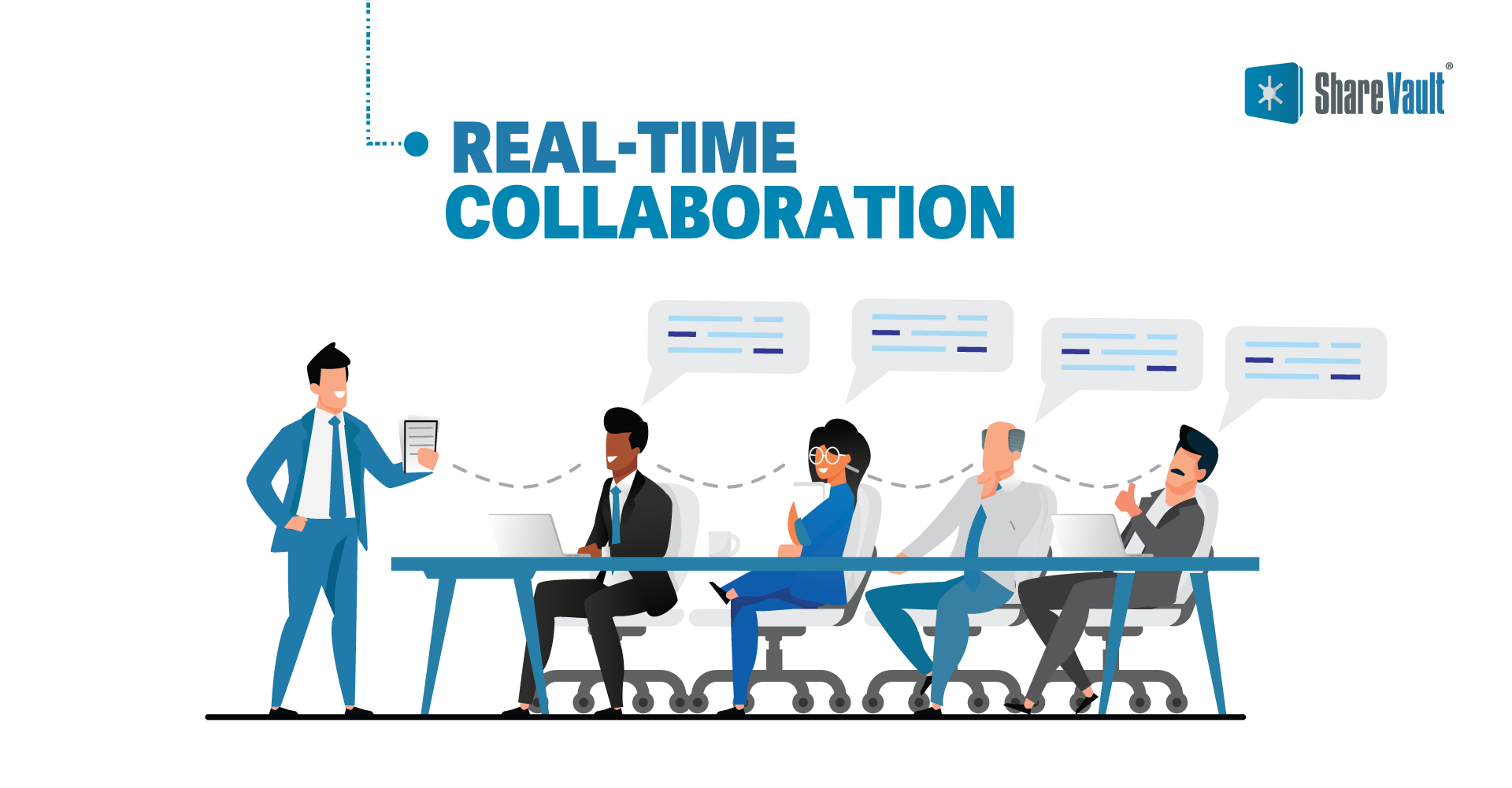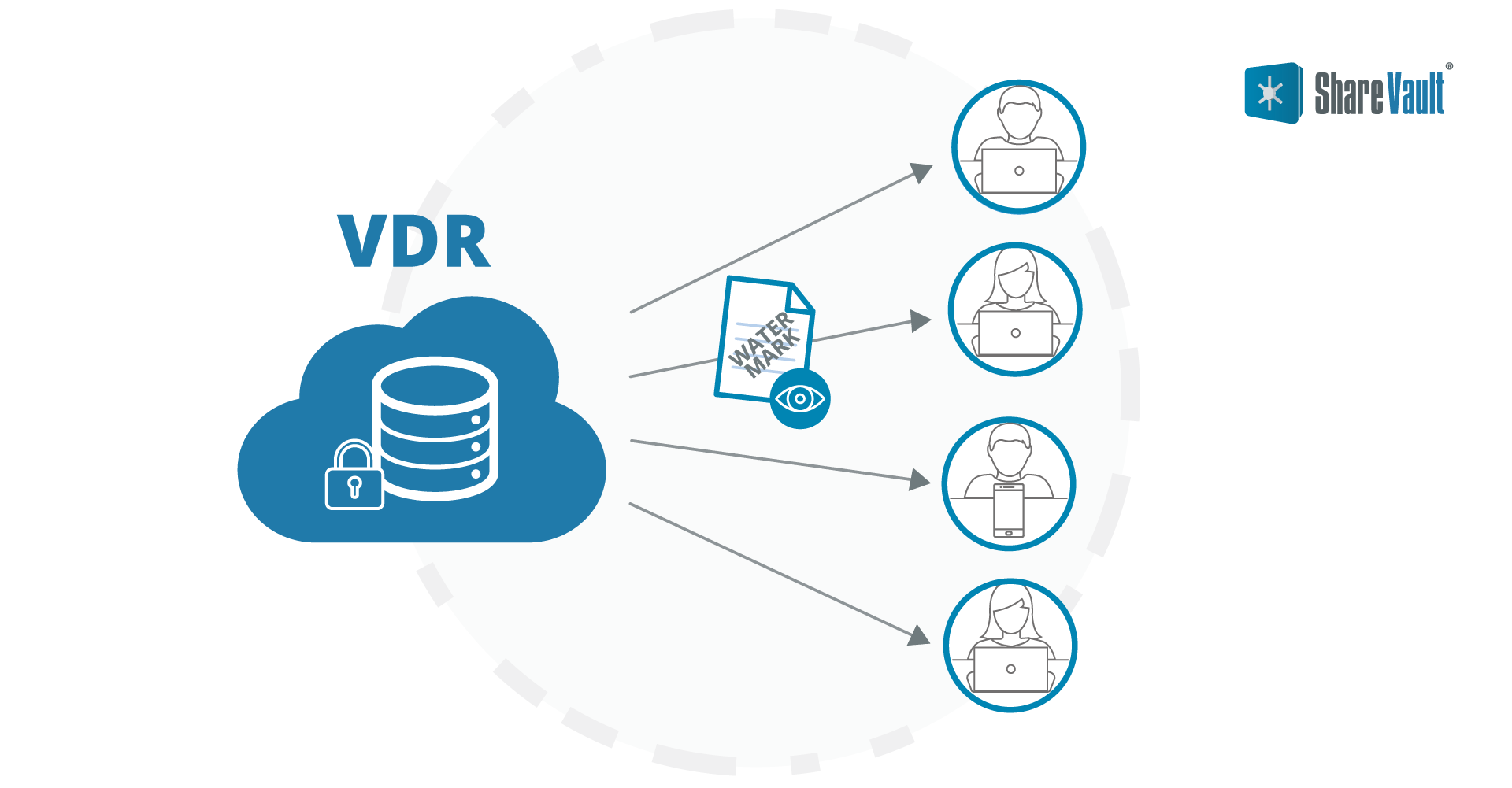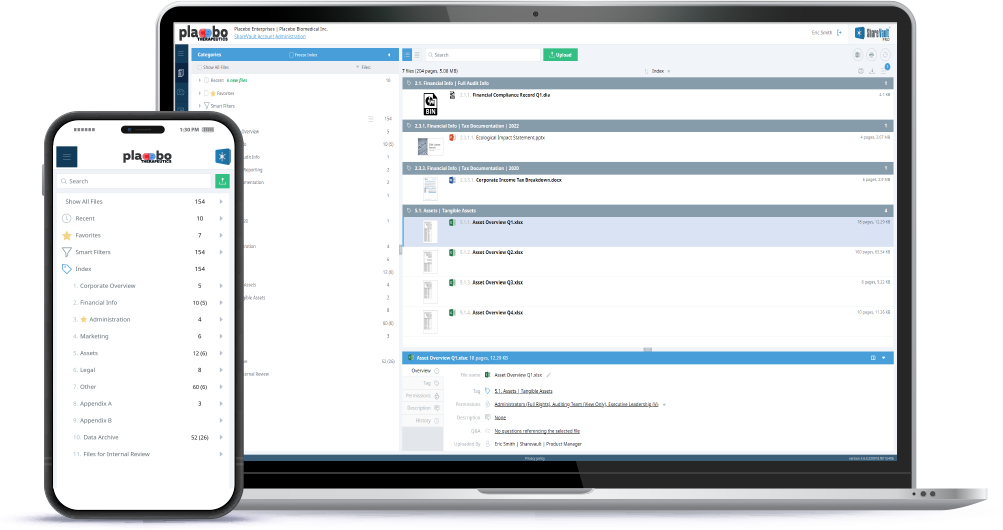Like going to the doctor or dentist, no one “wants” to go through a financial audit. But all business leaders know they are unavoidable. Financial audits are like diagnostic scans meant to ensure the accuracy and reliability of an organization’s financial statements and overall financial health.
When done well with tools like a virtual data room, audits can provide invaluable credibility and confidence to your organization's customers/clients, stakeholders, investors or lenders, and even potential buyers.
When done poorly, or without the proper security measures in place, audits can create an ominous vulnerability for any business. They can expose a company to a variety of dangers including data breaches, regulatory non-compliance, and even litigation and lawsuits from stakeholders, shareholders, or regulatory authorities.
In 2020, the U.S. Securities and Exchange Commission (SEC) brought enforcement actions resulting in more than $4.68 billion in penalties and disgorgements.
This should be a wake-up call to any organization that is about to embark on an audit process that is extremely resource intensive and cumbersome.
Thankfully, with the advances in digital technology, virtual data rooms (VDRs) have emerged as a powerful tool that simplifies and streamlines the audit process. They give everyone involved peace of mind as they take on this tedious endeavor.
In this blog, we will explore how virtual data rooms help make financial audits simpler, and more efficient, and enhance overall security, transparency and efficiency.
What Is A Virtual Data Room?
A virtual data room is an online repository used to store and share sensitive information securely with authorized parties. Initially developed for mergers and acquisitions (M&A) transactions, VDRs have found broader applications in various industries, including financial audits. VDRs facilitate document management, collaboration, and information exchange while maintaining strict security measures, offering an ideal solution for conducting audits.
The Benefits of a Virtual Data Room in Financial Audits
1. Centralized Document Management
Without a centralized and secure virtual data room, auditors may encounter challenges in accessing all relevant financial information. Incomplete or inaccurate data can lead to errors in the audit process, potentially resulting in misleading or incorrect conclusions.
Virtual data rooms like Sharevault provide a centralized platform where all relevant financial documents and records can be securely stored and organized. This platform can also be white-labeled so your brand remains front and center during the whole process.
Auditors and stakeholders can access these documents from anywhere with an internet connection, eliminating the need for physical document handling and reducing the risk of misplacing critical information.
2. Enhanced Security Measures
Security is paramount in financial audits, as the data being handled is highly sensitive and susceptible to costly data breaches.
In 2023, the global average cost of a data breach was $4.45 million, with the financial sector being one of the most targeted industries.
Virtual data rooms implement robust security features, such as data encryption, multi-factor authentication, and access controls, ensuring that only authorized individuals can view and interact with specific documents.
3. Real-time Collaboration

According to a McKinsey report, businesses that embrace digital collaboration tools can improve productivity by 20-30%. In the context of financial audits, real-time collaboration facilitated by virtual data rooms can significantly enhance efficiency and accuracy.
VDRs enable seamless collaboration between auditors, clients, and other stakeholders involved in the audit process. Team members can simultaneously review and annotate documents, exchange comments, and communicate in real time, speeding up the audit timeline and promoting efficient teamwork.

4. Version Control and Audit Trail
A report by Verizon indicates that 34% of all data breaches in 2020 involved internal actors.
With version control capabilities, VDRs allow auditors to track changes made to documents over time. Additionally, an audit trail records all activities within the data room, providing a detailed history of who accessed what documents and when, reinforcing accountability and transparency.
A Sharevault VDR also includes a watermark feature that deters recipients from being careless with documents. If a leak occurs, the source can be easily identified.

5. Ease of Review and Analysis
Virtual data rooms often come equipped with advanced search and filtering functionalities, making it easier for auditors to locate specific information quickly.
This accelerates the review process as auditors can focus on critical areas and identify potential anomalies or discrepancies more efficiently.
6. Secure Communication Channels
VDRs often offer secure messaging and Q&A features, enabling auditors to communicate directly with the organization's management or financial team while maintaining confidentiality.
This direct line of communication reduces delays in obtaining clarifications and additional information.
7. Global Accessibility

Virtual data rooms facilitate audits for organizations with international operations or stakeholders located across different regions.
Auditors from different locations can access the data room simultaneously, eliminating geographical barriers and enhancing the audit's overall efficiency.
8. Compliance and Reporting
VDRs are designed to comply with various data protection and privacy regulations. This ensures that the audit process aligns with legal requirements, safeguarding sensitive financial information and preventing potential legal complications.
Conclusion
Virtual data rooms have revolutionized the way financial audits are conducted, making the process simpler, more streamlined, and more secure. By providing a secure and collaborative platform for document management, VDRs enable auditors to perform their tasks efficiently while ensuring transparency and data integrity.
As technology continues to evolve and the opportunities for cyber-attacks increase, virtual data rooms will undoubtedly become an integral part of future financial audits. They will further enhance the accuracy, speed, and overall security of the auditing process. Embracing VDR technology is a step towards fostering trust and confidence in financial reporting and reinforces the commitment to upholding the highest standards of transparency in the financial world.
